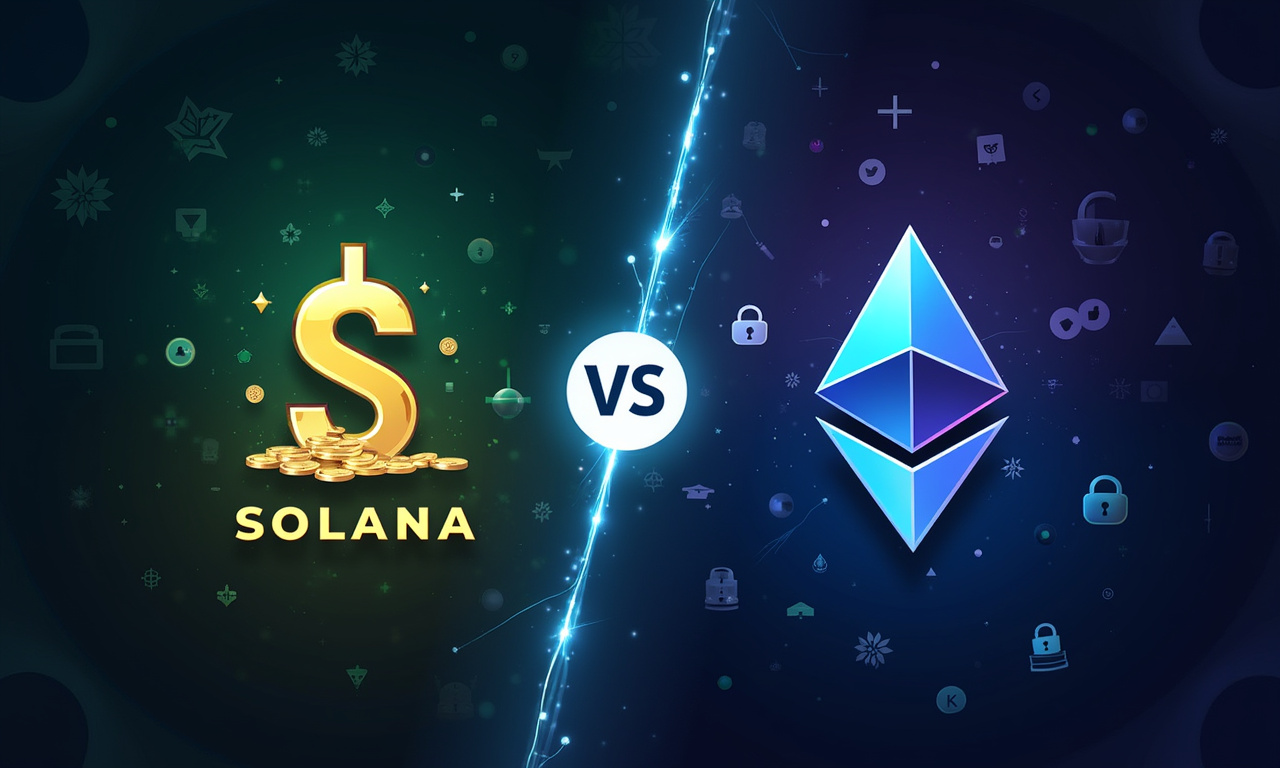
BlackRock talking crypto with the SEC? This holds the promise of a lovely and well-regulated romance. Or it could just be a corporate behemoth trying to strongarm its way into a new market. Let’s face it, it’s likely more than just half and half.
The crux of the issue appears to be staking, particularly as it relates to Ethereum ETFs. BlackRock would like to be the first to market with it, and the SEC is understandably gun shy. On one hand, allowing staking could increase returns for investors, making these new crypto ETFs more attractive. Consider it the dividend of the digital age. It also adds an entirely new layer of complication and possible danger. The question remains, is the average investor really prepared to grasp the complexities of staking? Or are we just putting them on the road to a rug pull marketed as “yield”?
Here's where an unexpected connection comes in: remember the mortgage-backed securities crisis of 2008?…a confluence of complex financial products, complicated and misunderstood risks, and a crapload of people losing their shirts. The SEC has a reason to be cautious, and that caution should not be confused with a lack of vision.
Tokenization is another key area of discussion. Now, picture being able to convert tangible assets – property, artwork, even royalties – into digital tokens that are highly liquid and city-friendly. The promise for enhanced liquidity and access is tremendous. So is the prospect of regulatory nightmare.
Think about it: how do you regulate fractional ownership of a Picasso when it's traded on a decentralized exchange? What if a tokenized asset backed by a new building runs afoul of zoning? These are the types of important questions that the SEC should proactively be answering—not in a post hoc manner. Otherwise, we’re just creating a new digital wild west, ready for scams and exploitation.
BlackRock is just as interested in crypto ETF expansion. Which is fair, but we need to ask ourselves: are the approval standards applied equally to everyone? Or alternatively, does BlackRock’s size and influence mean that they have an unfair advantage? That's a question worth asking.
The SEC has an obligation to uphold investors’ interest and ensure the integrity of our markets. That’s an even playing field—applying the same rules and standards to all, no matter how big, powerful or connected they are. Otherwise, we’ll be on our way to making the rich richer, and leaving everybody else behind in the process. And that will spark outrage!
Ultimately, the BlackRock-SEC discussions constitute a watershed moment for the future of crypto. No one is against responsible regulation, but no one wants to see innovation stifled by heavy-handed regulation either. Nor do we want to see a reoccurrence of the Great Recession and other past financial calamities. The answer as always is the pragmatic solution of the middle ground.
Let’s face it, BlackRock isn’t offering this out of the kindness of its corporate bosom. They see a massive profit opportunity. Their increased involvement in the space doesn’t quite mean this is a bad thing. If so, it can lead to more regulatory clarity and thus greater institutional adoption. That would be a win-win for all. Again, only if we do so cautiously and with a healthy dose of skepticism. That needs to be the SEC’s ultimate aim.
- Potential Benefits of ETF Approvals:
- Increased accessibility for retail investors.
- Greater liquidity in the crypto market.
- Validation of crypto as an asset class.
- Potential Risks of ETF Approvals:
- Concentration of power in the hands of a few large players.
- Increased regulatory scrutiny on the entire crypto industry.
- Potential for market manipulation.
Beyond creating uncertainty about the issues at stake, the discussions themselves between BlackRock and the SEC will have far-reaching implications for the crypto industry.
Are you feeling anxious? You should be. The decisions made in these meetings will affect your investments, your financial future, and the very shape of the digital economy. It's time to pay attention.
Ultimately, the BlackRock-SEC talks represent a critical moment for the future of crypto. No one wants to see innovation stifled by heavy-handed regulation. But neither do we want to see a repeat of past financial disasters. The key is finding a pragmatic middle ground.
That means:
- Clear and consistent rules: The SEC needs to provide clear guidance on staking, tokenization, and other key areas. Ambiguity breeds uncertainty and discourages investment.
- Risk-based regulation: Regulations should be tailored to the specific risks involved. Not every crypto project is created equal.
- International cooperation: Crypto is a global phenomenon. The SEC needs to work with regulators around the world to ensure a level playing field and prevent regulatory arbitrage.
- Embrace innovation: The SEC shouldn't be afraid to experiment with new regulatory approaches. The crypto market is constantly evolving, and regulations need to keep pace.
Let's be honest, BlackRock isn't doing this out of the goodness of its heart. They see a massive profit opportunity. But that doesn't necessarily mean their involvement is a bad thing. If it leads to greater regulatory clarity and increased institutional adoption, it could be a win-win for everyone. But only if we proceed with caution, and with a healthy dose of skepticism. And that should be the goal of the SEC.
What's At Stake?
The discussions between BlackRock and the SEC will have far-reaching implications for the crypto industry.
- Long-Term Impact: It could shape the future of crypto finance, influencing the integration of traditional finance and blockchain technology.
- Accessibility: It could make crypto investments more accessible and secure for everyday users.
- Innovation: It could lead to the development of new and innovative financial products.
- Job Creation: It could create new job opportunities in the crypto sector.
Are you feeling anxious? You should be. The decisions made in these meetings will affect your investments, your financial future, and the very shape of the digital economy. It's time to pay attention.

Tran Quoc Duy
Blockchain Editor
Tran Quoc Duy offers centrist, well-grounded blockchain analysis, focusing on practical risks and utility in cryptocurrency domains. His analytical depth and subtle humor bring a thoughtful, measured voice to staking and mining topics. In his spare time, he enjoys landscape painting and classic science fiction novels.








